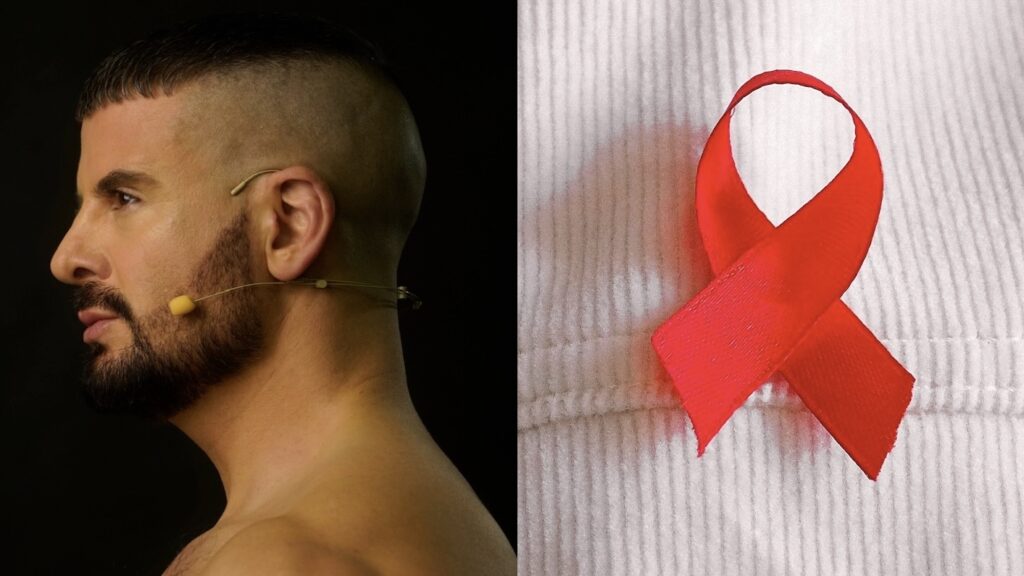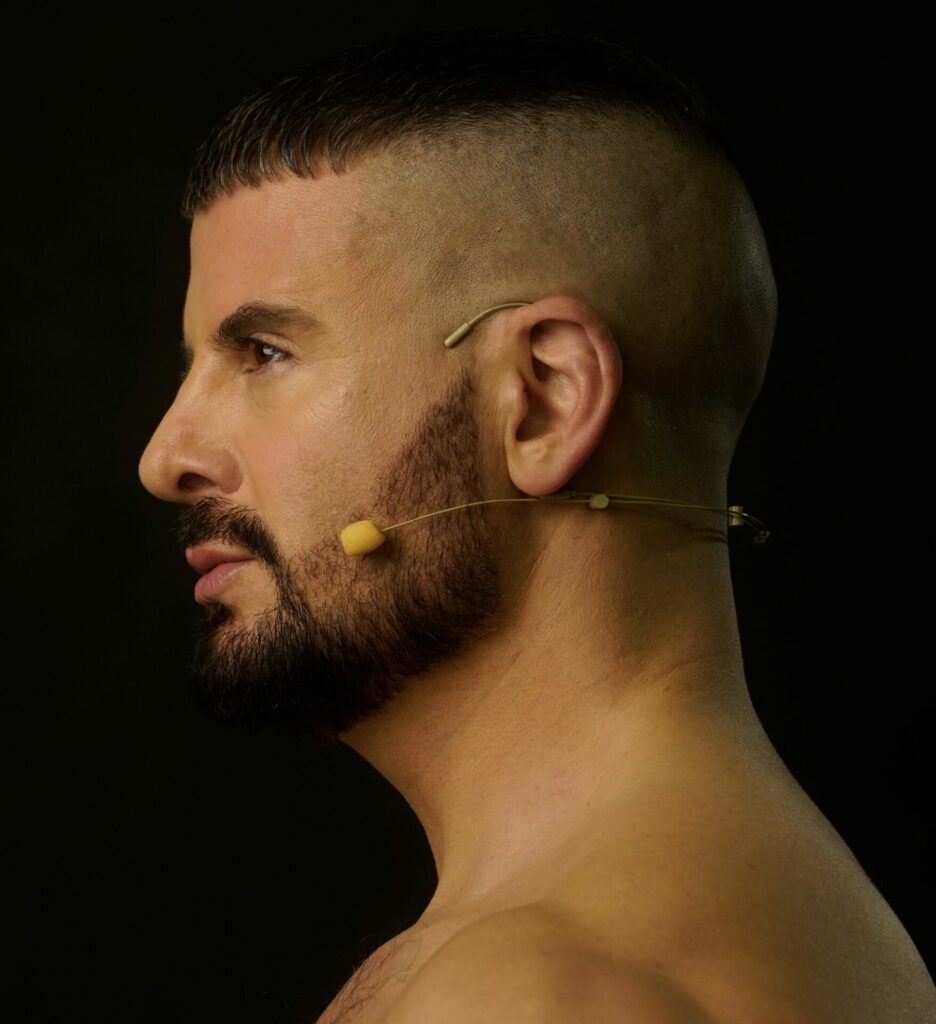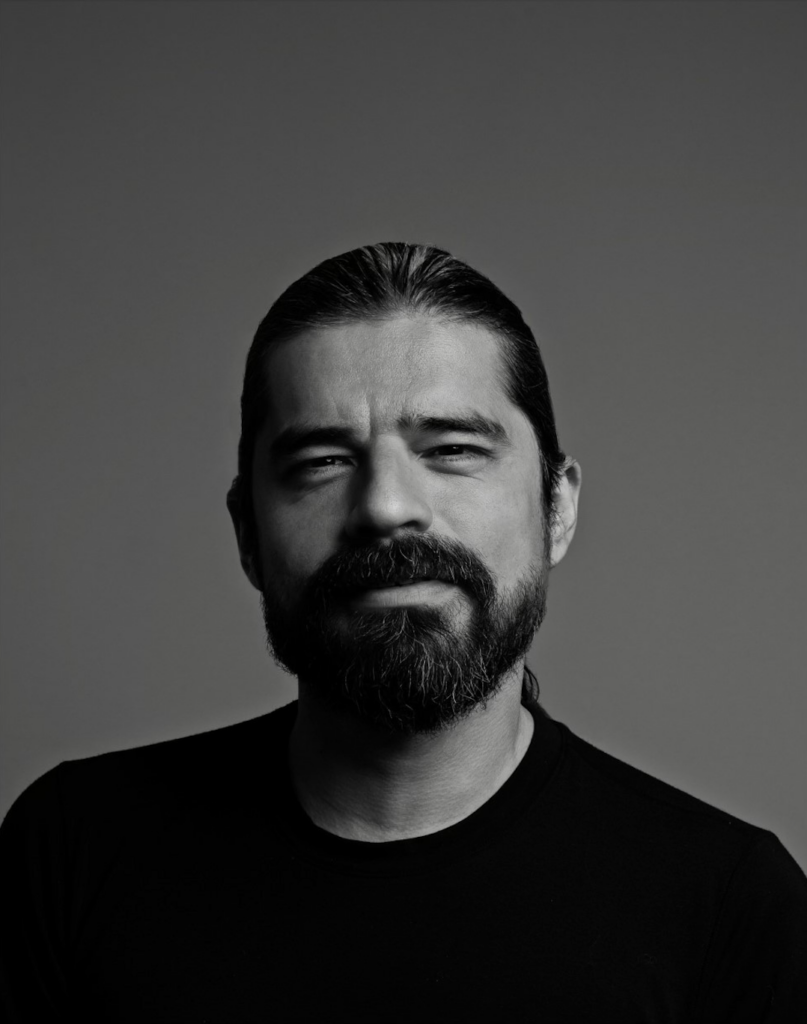‘The stories will stay alive as long as new queer minds are being born’
Alexis Gregory speaks to Russell T Davies and Leo Herrera ahead of Riot Act returning for World AIDS Day.

I thought that in interviewing the three extraordinary gay men, whose exact words form the three monologues in Riot Act, my self-performed verbatim solo show, that only 1990’s London Aids activist Paul Burston, would discuss HIV and Aids with me.
I was wrong.
The virus is the unifying thread explored across all three stories, the other two being that of Stonewall survivor Michael Anthony Nozzi, and Hackney-born 1970’s radical-drag legend Lavinia Co-op. Quite simply, you don’t get to speak to gay men of Michael and Lavinia’s age, now in their seventies, about their lives, and not touch on the virus in some shape or form.
I’ve performed Riot Act all over London, throughout the UK, and as a filmed online digital ‘reimagining’. With Riot Act’s next incarnation approaching, a return to intimate West End cabaret venue Crazy Coqs for a one-off World Aids Day performance, I spoke to two of my favourite LGBTQ+ writers, to try and understand why the virus still influences playwrights and screenwriters, how such narratives fit into the present, where we may go next with them, and why they are important.

TV titan Russell T Davies, creator of the groundbreaking Queer as Folk, and equally groundbreaking It’s A Sin told me why, decades into a hugely successful TV career and no stranger to representing queer lives, he finally decided to explore HIV and Aids on screen. “I think it was always on its way. I would have gone to my grave very disappointed if I hadn’t looked at it. I also got a sense that the parents of the boys that we lost were beginning to die; a whole generation was passing. That meant there was a danger of things being forgotten, and that some things were being freed.”
Russell went on to explain another reason too, a more personal loss, unrelated to HIV and Aids, but that fits within a wider landscape; “I had a husband who died. It makes you look at life and death in a different way.” Russell also spoke of placing loss within a wider global context too; “The world is changing so fast. You look around and think ‘this is a really different world’, and you think of the people who aren’t seeing a different world.”
The mix of the personal and political is of great interest to me. It’s certainly explored in Riot Act. While there are similarities to my three character’s experiences, they are also wildly different too, echoing Russell’s thoughts; “Millions of people died from it. There are millions of stories waiting to be told. Every single one of them is different. Every single mind coming to it, will approach it in a new way.”
One of the new minds coming to it, and most definitely approaching in a new way, is US based, Mexican writer, activist, and filmmaker Leo Herrera. I first came across Leo on Instagram where his breathtaking viral ‘essay memes’ cut straight to the heart of the queer experience. Leo is the creator of Fathers, a sci-fi documentary currently streaming online, imagining the Aids pandemic never existed, weaving real-life events, survivor histories, and fiction, into a surreal queer-utopia-rich vision of an alternative universe.
Leo describes Father’s premise as a “heartbreaking, thrilling, impossible question.” It’s a massive ‘what if?’; a beautiful piece of work; painfully bittersweet, yet hauntingly celebratory. Leo is aware of the weight of his own hypothetical proposal; “What if Aids never happened? reveals trauma that is private and devastating. Secondary trauma from Aids is radioactive to those who came of age in the height of that fear.”

Leo and I chatted over email; “Fathers was created from my own need of reconnecting to heroes who died of Aids when I was young. I am now the age many of them were when they left us.” Again, this took me back to the personal within a wider context, with Leo adding, “I wanted an ongoing project which could pay homage to their stories and show a younger generation how the impact of Aids continues to shape our world. I’m really interested in the smaller moments of those communities, my communities, who found joy and ingenuity through the crisis.”
To me, it feels like we are currently entering a new era of queer storytelling. I have also had other gay men express to me, sometimes frustratedly, they’d love to see other aspects of our lives explored on stage and screen. Russell points out that this is nothing new: “I completely respect that there’s a voice, that has always been there, saying ‘why does Aids always have to be part of the stories?’, and that’s a very good point of view.” Russell adds that in Queer as Folk, first transmitted in the UK in 1999, he purposely didn’t explore the virus in it; “Aids is barely ever mentioned, but in every single episode you’ll hear a reference to a charity night, or a death, or an old friend no longer with us.”
On future depictions of Aids, Russel adds: “The stories will stay alive as long as new queer minds are being born, and that happens, in vast numbers, every day.” This is echoed by Leo’s words to me; “Much of our history has been told through the eyes of white gay men. This was a limit in researching for Fathers. We have so many stories of folks of colour, immigrants, trans stories; so many which have been washed away by history and lack of records. It turns out somewhere, in the depths of unfathomable loss, if you look deep enough, there lies an eternity of stories.”
Riot Act is performed on World Aids Day 1 December 2022 at Crazy Coqs, London – you can find out more and purchase tickets here.
